With the death of Ratan Tata, the popular assumption is that overall control of the Tata group, as opposed to the day-to-day running of the business house which is in the capable hands of Tata Sons chairperson Natarajan Chandrasekaran, will automatically pass on to Ratan’s half-brother Noel Tata. But things are not so clear cut. Like many before him, Ratan did not leave a clear line of succession on who should inherit his mantle — unless he wrote something in his will. He also did not personally own shares in Tata Sons which he could bequeath to an heir.
Unlike most business houses, Tata Sons is owned largely not by individuals but by two charitable trusts. The Sir Ratanji Tata Trust and the Sir Dorabji Tata Trust, named in memory of Sir Jamsetji Tata’s sons who willed most of the assets to charity, have controlling interests in Tata Sons which is the holding company for the individual Tata corporations.
The trusts originally controlled 66 per cent but it is possible the ownership pattern has got slightly diluted. So as things stand, whoever heads the trusts indirectly controls the group.
Before Ratan retired as Tata chairperson in 2012, he framed new Articles of Association tightening the trusts’ hold over the group. The two main trusts have the right to nominate one-third of the directors to Tata Sons as well as act as the final authority of appointment and removal of all directors.
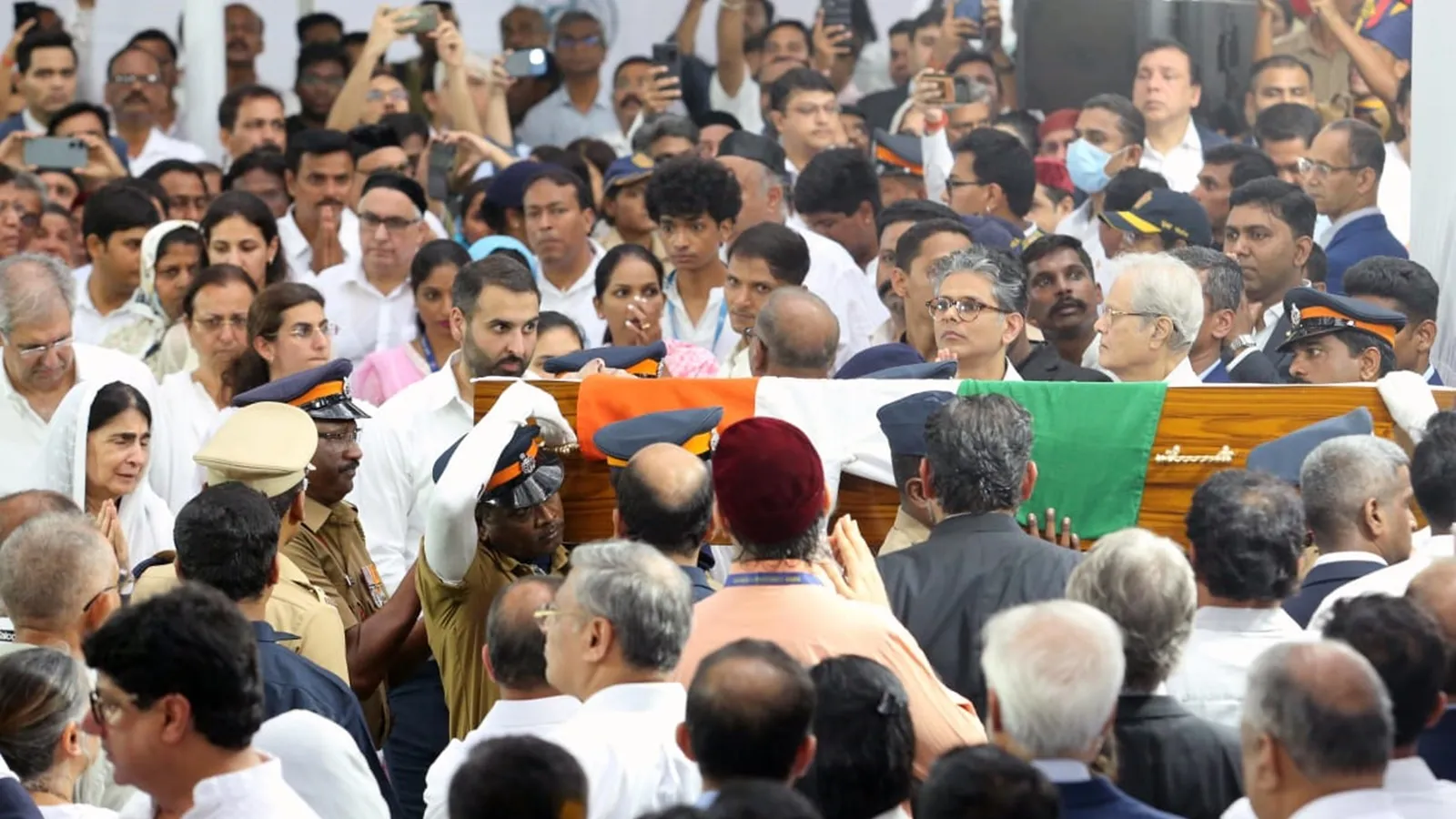 Mortal remains of industrialist Ratan Tata during his last rites, at the Worli Crematorium in Mumbai. (Express Photo By Ganesh Shirsekar)
Mortal remains of industrialist Ratan Tata during his last rites, at the Worli Crematorium in Mumbai. (Express Photo By Ganesh Shirsekar)
Incidentally, among the issues raised by the late Cyrus Mistry, former chairperson of the Tata group, was the need to institutionalise Tatas so that it was not run by any single individual. Mistry suggested that a corporate governance framework be drafted to clearly spell out the role of Tata Sons, the role of the trusts and the role of the operating companies. This was never done as Mistry was fired at a meeting of the Tata Sons board on October 24, 2016 before even a preliminary draft on the issue could be framed.

The history of the unusual arrangement between the trusts and the holding company goes back to old practice in India of companies being run by managing agencies. But with a change in the company law, with the introduction of the Monopolies and Restrictive Trade Practices (MRTP) Act of 1969, the managing agency system was abolished and the numerous Tata companies became legally independent of the parent board. The unity of the group was in jeopardy. Tata Sons did not have a majority holding in most Tata companies, and it was only the high respect that JRD Tata commanded that held together a group which, in fact, became a loose confederation of companies.
The group was especially vulnerable to a hostile takeover since, according to government rules, charitable trusts could not vote directly in corporate matters but only through a neutral government nominee.
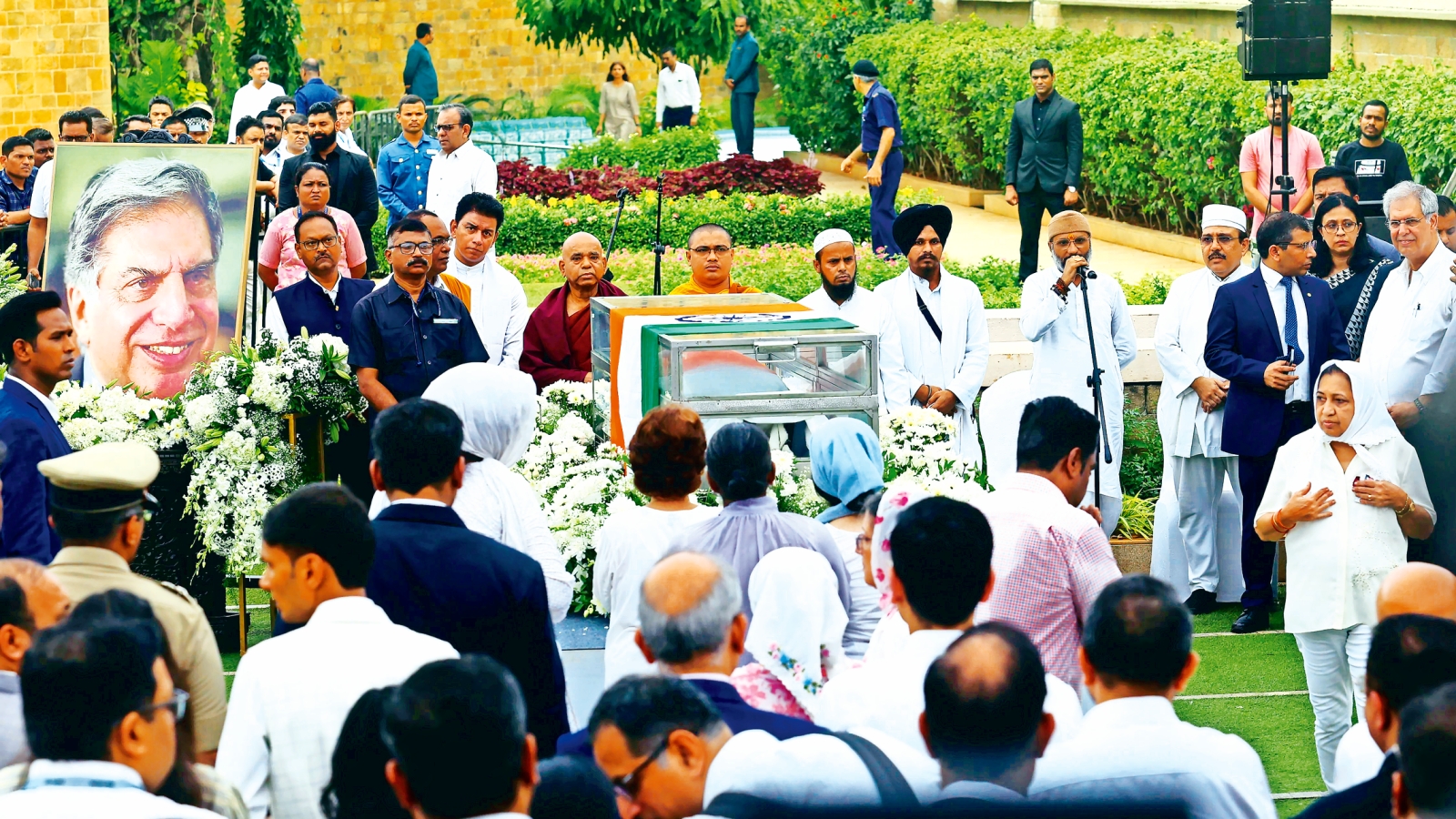 People gathered at the NCPA lawns in Mumbai on Thursday to pay their last respects to Ratan Tata who passed away at 86 years. He was later cremated with full state honours. (Image: Deepak Joshi)
People gathered at the NCPA lawns in Mumbai on Thursday to pay their last respects to Ratan Tata who passed away at 86 years. He was later cremated with full state honours. (Image: Deepak Joshi)
After JRD’s death, it was again Ratan Tata’s name and reputation which held the disparate Tata companies together. But Ratan was always conscious of the vulnerability of the group since Section 153A of the Companies Act, 1963, empowered the government to appoint a public trustee to act on behalf of private trusts. Until this section was amended, the Tata Trusts, and Ratan Tata as the head, had technically no say over the running of Tata Sons.
During Atal Bihari Vajpayee’s tenure as Prime Minister, reportedly through the good offices of Nusli Wadia, then a close friend and ally of Ratan Tata, the Companies Act was amended in 2002 and a change in Section 153A was Tata specific. It allowed Tata trusts to vote directly on the Tata Sons Board and not through a government-nominated trustee.
The big question today is who will control the Tata trusts in future. Ratan had appointed businessman Venu Srinivasan, chairperson of TVS Motor, and Vijay Singh, a former Defence Secretary, as vice-chairpersons of both the trusts. His half-brother Noel, with whom Ratan appeared to have had a strained relationship for many years, was finally made a trustee of the Sir Ratanji Tata Trust as late as 2019 and of the Sir Dorabji Tata Trust only in 2022.
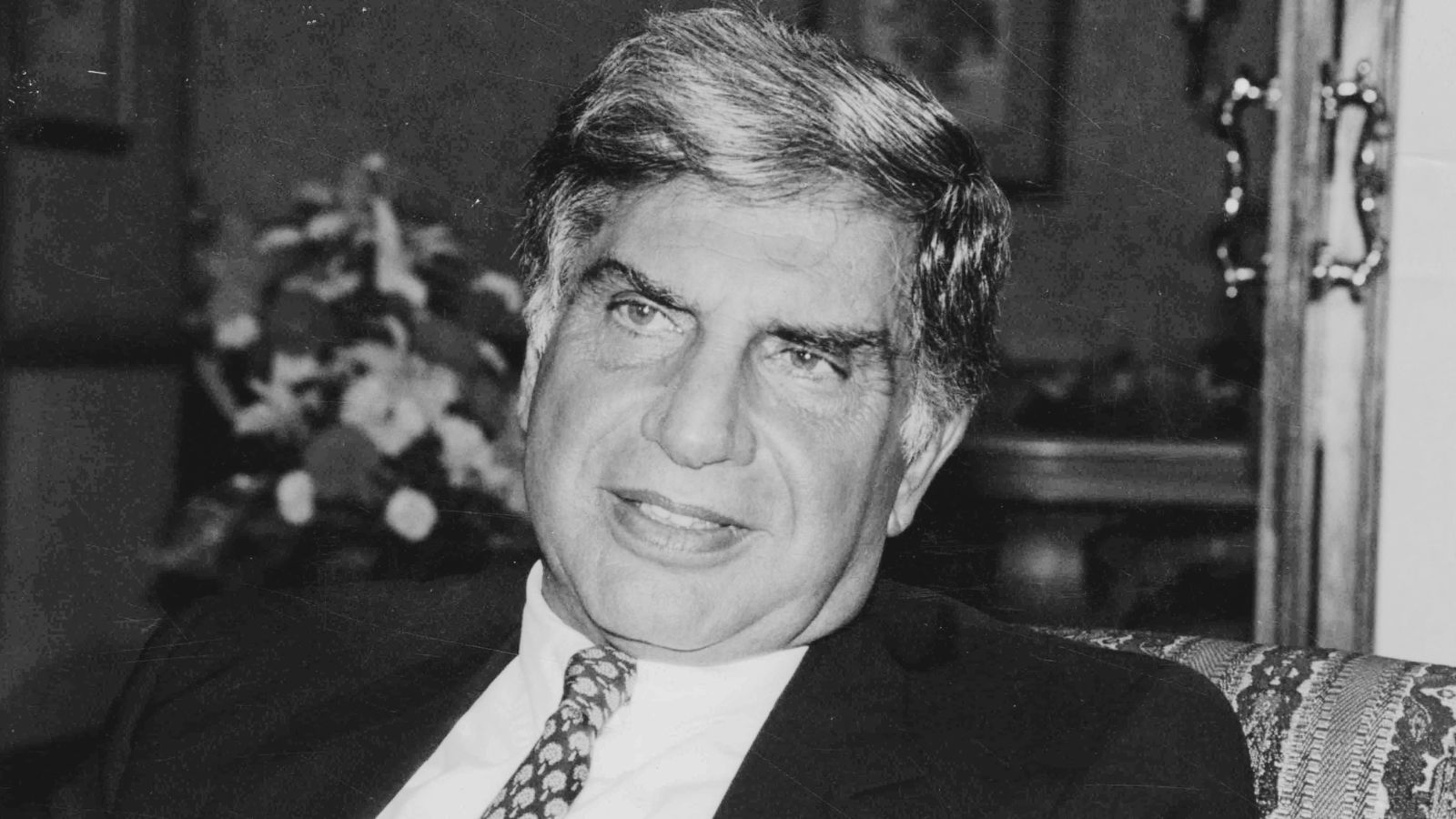 Tata Sons Chairman emeritus Ratan Naval Tata (Express Archives)
Tata Sons Chairman emeritus Ratan Naval Tata (Express Archives)
Incidentally, Noel, brother-in-law of Cyrus Mistry, was once considered a contender for the chairpersonship of the Tatas in 2012 when Cyrus was eventually selected. From the list of present trustees available, it appears that only Srinivasan, Singh and Noel are common names in the two powerful trusts. Noel’s second daughter Maya is included as a trustee of the Ratanji Tata Trust. It is likely that all trust members on the two separate trusts will get to vote for their respective new chairperson.
By virtue of its dominant shareholding in Tata Sons, the person holding the chairperson’s post at Tata Trusts will play a crucial role in the group’s affairs and future growth.
The money spinner for the group is TCS which made a profit of Rs 43,559 crore in FY2024 and the group was bankrolling new investments from the dividend generated from the tech giant for Tata Sons. The global economic downturn and domestic challenges could pose major challenges for the group’s leaders and companies like Tata Steel, TCS and Tata Motors in the coming years. The big challenge before Ratan Tata’s successor will be to lead the group companies in a cohesive way with foresight, vision and dynamism.
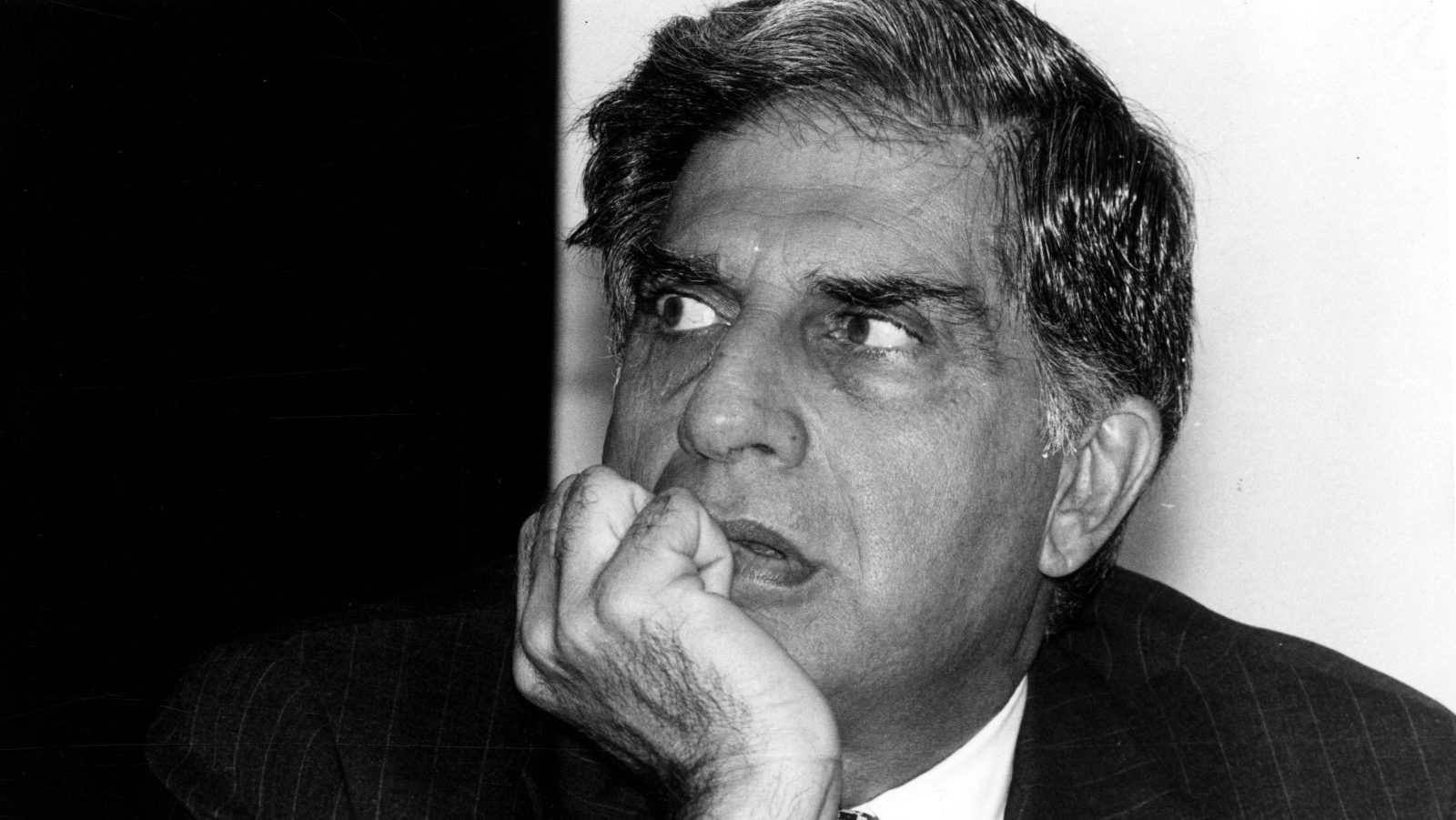 Industrialist Ratan Tata. (Express archive photo by Vinayak Prabhu)
Industrialist Ratan Tata. (Express archive photo by Vinayak Prabhu)
Noel, seen as a strong contender, is currently the chairman of Trent, Voltas, Tata Investment Corporation and Tata International. Noel is also the Vice Chairman of Tata Steel and Titan. As he is also on the board of Sir Ratan Tata Trust, it gives him some advantage to become the chairperson of Tata Trusts which in turn controls Tata Sons.
Jimmy Tata, younger brother of Ratan Tata, is not involved in the family business and has kept out of the limelight.
Mehli Mistry is reportedly another potential successor, according to corporate sources. Mistry, a director of the Meherji Pallonji Group, was a close associate of Ratan Tata, and has been associated with the Tata group for several years. Mistry is a cousin of Cyrus Mistry who was killed in a car accident near Mumbai in September 2022.
The M Pallonji group is involved in industrial painting, dredging, stevedoring, logistics solutions, shipping, finance, investments, life insurance, automobile dealerships and manufacture of specialty coatings.
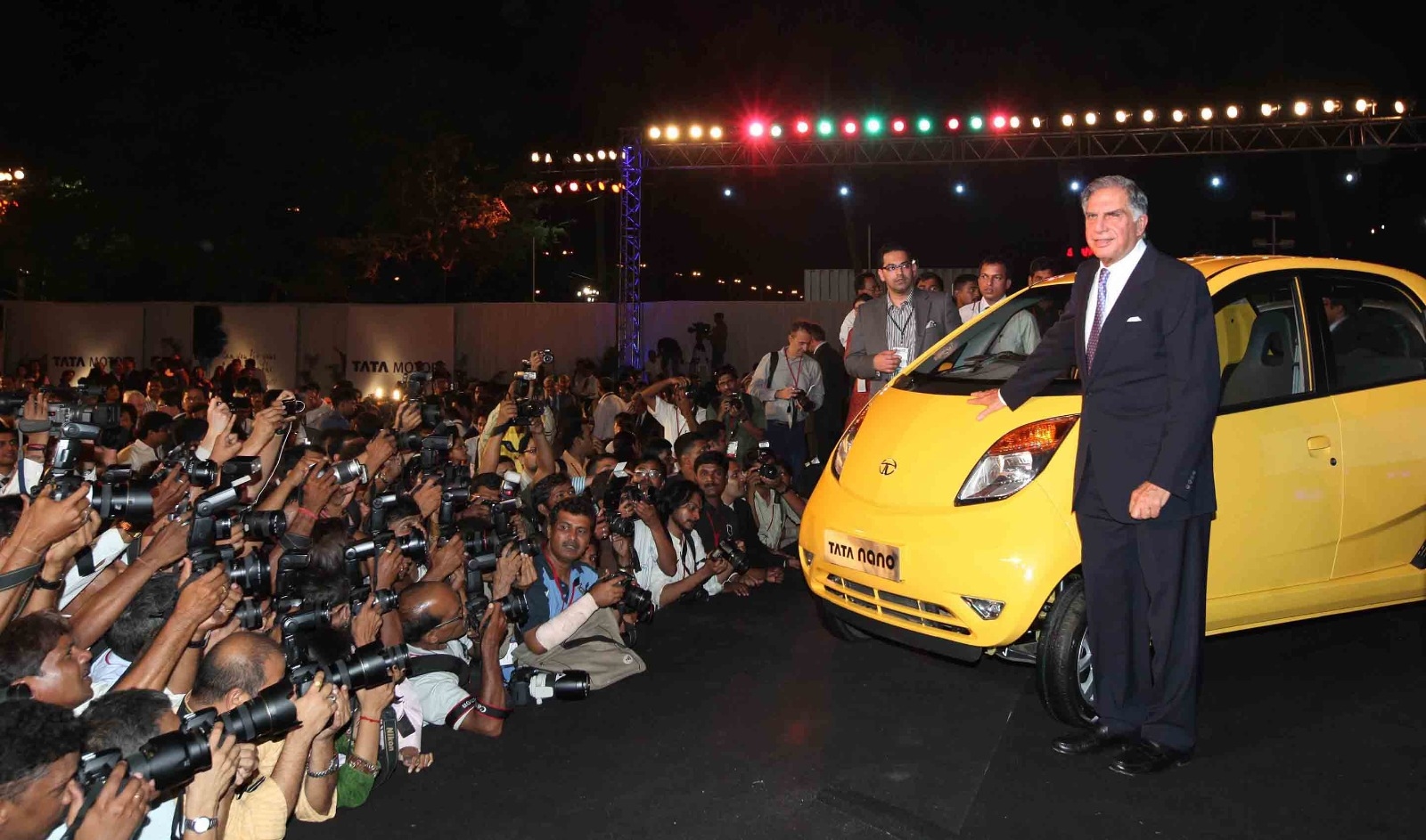 Ratan Tata at Nano launch at Parsi Gymkhana
Ratan Tata at Nano launch at Parsi Gymkhana
There could be a dark horse from within the group or outside as the group needs a strong hand to face the challenges and lead from the front.
In the Tata group, retirement from executive positions is at age 65 and from all board positions at age 70. Chandrasekaran has another four years left at Tata Sons.
Shapoor Mistry, who controls Pallonji Mistry group which holds 18.4 per cent stake in Tata Sons, is ruled out as the Tatas were involved in a legal battle with the Mistrys.
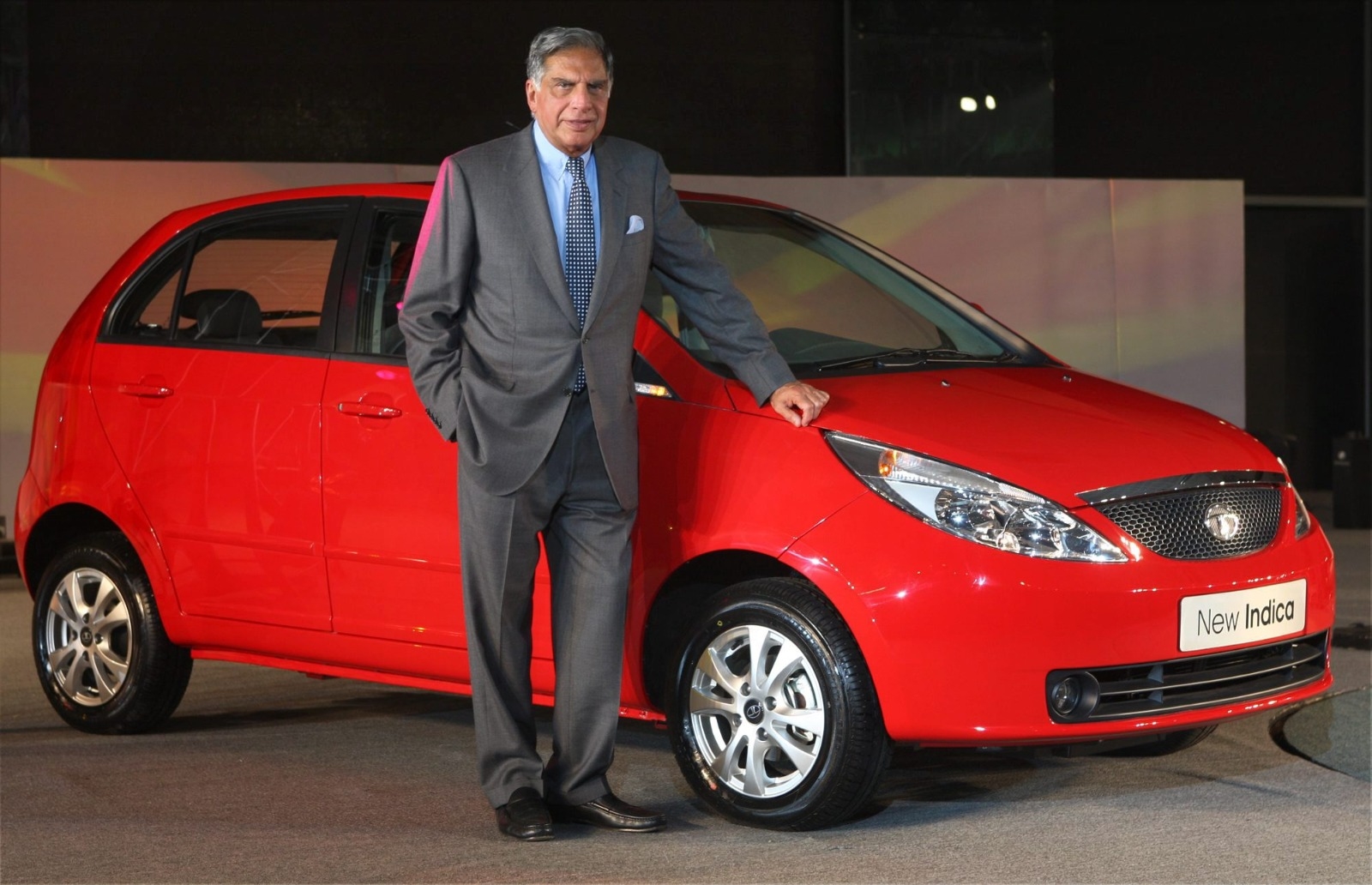 Ratan Tata poses next to the new Direct Injection Common Rail (DICOR) version Indica vehicle, at it’s launch at the 9th Auto Expo in New Delhi. (PTI)
Ratan Tata poses next to the new Direct Injection Common Rail (DICOR) version Indica vehicle, at it’s launch at the 9th Auto Expo in New Delhi. (PTI)
A number of trusts have been established over the years by the Tatas – the largest being the Sir Ratan Tata Trust which was set up in 1919 and Sir Dorabji Tata Trust, which operate under the umbrella of the Tata Trusts.
There are three trusts under Sir Ratan Tata Trust and Allied Trusts. In Sir Ratan Tata Trusts, former Defence Secretary Vijay Singh and TVS group’s Venu Srinivasan are currently the vice-chairpersons. The other members include JN Tata, Noel Tata, Jehangir HC Jehangir, Mehli Mistry and Darius Khambata. In Tata Education and Development Trust, JN Mistry, Vijay Singh and Venu Srinivasan are members. In Navajbai Ratan Tata Trust, JN Mistry, Vijay Singh and Venu Srinivasan are members.
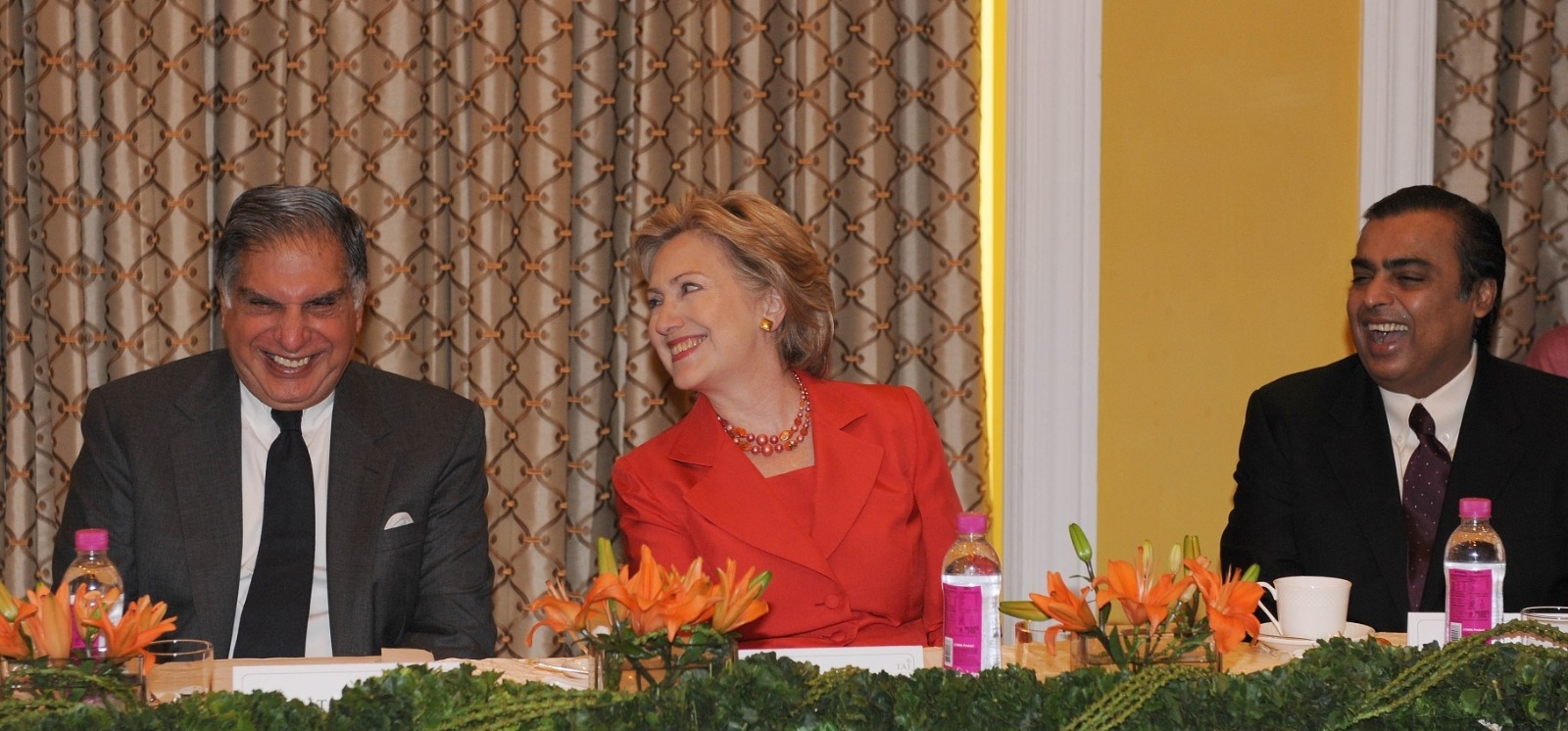 Hillary Clinton along with Ratan Tata and Mukesh Ambani at the business meet at Hotel Taj Mahal. (Express photo)
Hillary Clinton along with Ratan Tata and Mukesh Ambani at the business meet at Hotel Taj Mahal. (Express photo)
Under Sir Dorabji Tata Trust & Allied Trusts, there are three trusts. In Sir Dorabji Tata Trust, Vijay Singh and Venu Srinivasan are vice-chairpersons. Other members include Pramit Jhaveri, Noel Tata, Mehli Mistry and Darius Khambata. In Lady Tata Memorial Trust, FK Kavarana, PB Desai and M Chandy are the other members. In JRD Tata Trust, Vijay Singh and Venu Srinivasan are vice-chairpersons while Neville N Tata is a member. Neville is the son of Noel Tata.
In 2023-24, the revenue of Tata companies, taken together, was more than $165 billion. These companies collectively employ over one million people, according to Tata Sons. IT giant TCS, Tata Steel and Tata Motors are leaders in their segments.
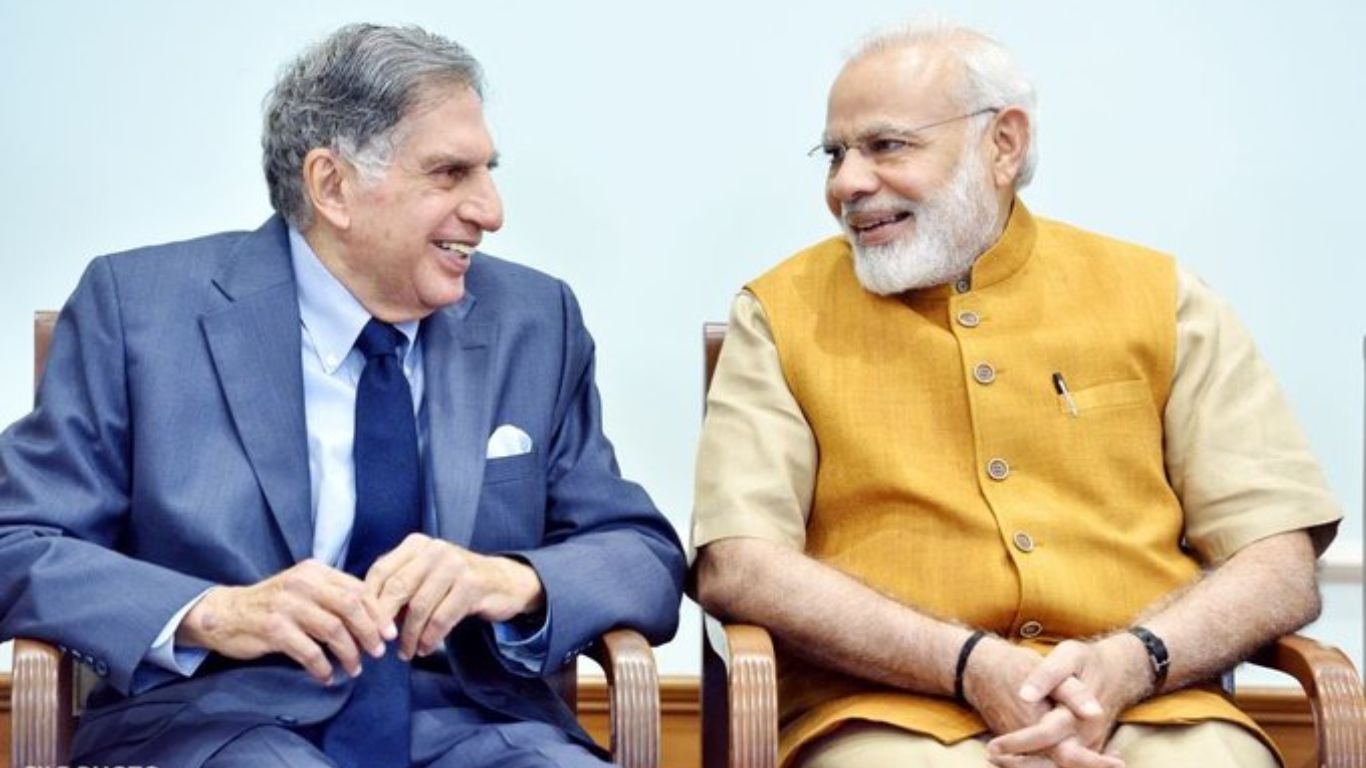 PM Modi described Tata as a “visionary business leader, a compassionate soul, and an extraordinary human being.” (Photo: X/ @narendramodi)
PM Modi described Tata as a “visionary business leader, a compassionate soul, and an extraordinary human being.” (Photo: X/ @narendramodi)
Each Tata company or enterprise operates independently under the guidance and supervision of its own board of directors. There are 26 publicly listed Tata enterprises with a combined market capitalisation of more than $365 billion as on March 31, 2024. The group operates in more than 100 countries across six continents, says the Tata website.

